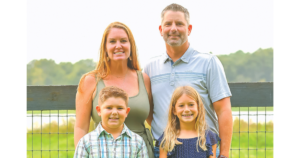
Chris Wirt doesn’t live in Wesley Chapel anymore, but he still has a soft spot for the area.
So, when the Westchase-based trapper received a call from a Quail Hollow resident concerned with recent coyote activity in our area, Wirt was more than happy to oblige, trapping and euthanizing the predator.
Assignments like that one, Wirt says, are becoming more and more common these days.
Coyotes are becoming a growing menace in the New Tampa and Wesley Chapel area, he explains. Wirt says he has fielded calls from people who have seen coyotes in Meadow Pointe, Live Oak and even Tampa Palms.
“They’re everywhere,’’ he said.
Along with the handful of local sightings, there have also been recent reports of coyote activity in St. Petersburg and Valrico, as well.
Wirt says he gets 2-3 calls a month because a coyote has killed a family pet.
“They can be aggressive,’’ he said. “They are like German Shepherds on steroids.”
In the Wesley Chapel and New Tampa area, coyotes have been sighted in multiple areas. Wirt, 39 and a Wesley Chapel resident and fireman from 1999-2005, says he even once saw one crossing the street between the Publix on S.R. 56 and the Shops at Wiregrass mall around midnight.
But when they invade people’s backyards, often in search of family pets to dine on, Wirt is called in.
“They do keep to themselves, unless there’s no food source,’’ Wirt says. “They eat rabbits and possums and anything they can get ahold of, but when those food sources are gone, they will eat whatever they can find, and sometimes that’s your cats and dogs.”
Wirt recently posted a picture of two dead coyotes — one he trapped and another a homeowner trapped and killed — causing a kerfuffle on the Wesley Chapel Community Facebook page. Because the images were deemed grisly, the post was taken down and he was banned. But Wirt, who actively answers questions about all kinds of wildlife on the Facebook page, was reinstated a few hours later thanks to an outpouring of support by the group’s other members who appreciate his help.
“People will watch (gory zombie survival show) The Walking Dead and they will watch blood and gore all day, but they don’t want to see what is happening in the community,’’ said Wirt.
Wirt was born in Utah, attended high school in West Virginia and now resides in Florida. He said he has lived in every place in between, and the interest in catching animals he had as a young child has only grown.
Two years ago, he bought an A All Animal Control franchise and became a trapper full-time.
“I didn’t get into this business to hurt animals,’’ says Wirt, who sympathizes with animals pushed out of their natural habitat by developing communities and business growth. “We are encroaching on them, they aren’t encroaching on us.”

He recently trapped a coyote pup, and handed it over to an education zoo. But it is against state law to relocate coyotes, which have to euthanized.
“There’s a good reason for that,’’ says Gary Morse, spokesperson for the Florida Fish & Wildlife Conservation Commission (FWC). “If you have a coyote that has these bad habits, re-releasing them somewhere else is only relocating a problem.”
Morse explains that there are thousands upon thousands of coyote sightings in the state, so it is not unusual to spot one, especially near areas like Wesley Chapel and New Tampa.
“The coyote population is considerable, particularly in urbanized areas,’’ he says. “The coyote populations tend to be 3-5 times higher, frankly, because there tends to be more food, like fruit, rodents and small pets.”
Morse says adults and children are generally not at risk. He said the problem of coyotes preying on home pets is “common and nothing unusual.”
Trapping coyotes, Morse says, isn’t eliminating the threat.
“You may get 1-2 coyotes, but they generally replace themselves very quickly,’’ he explains. “The best protection for small dogs and cats is not to let them roam about freely. Doing so is not a very responsible model for pet ownership.”
Morse suggests visiting MyFWC.com for more information about coyotes and how to handle them.
Wirt continues to field calls and requests about all kinds of wildlife in the area, as people look for help identifying snakes and other unfamiliar animals. The more human expansion into nature, the more business he gets.
And one day, he may have some help while out on assignment: his 4-year-old son Hunter recently trapped his first squirrel.
For more info about Wirt’s services, visit AAllAnimalControl.com.




No comment yet, add your voice below!